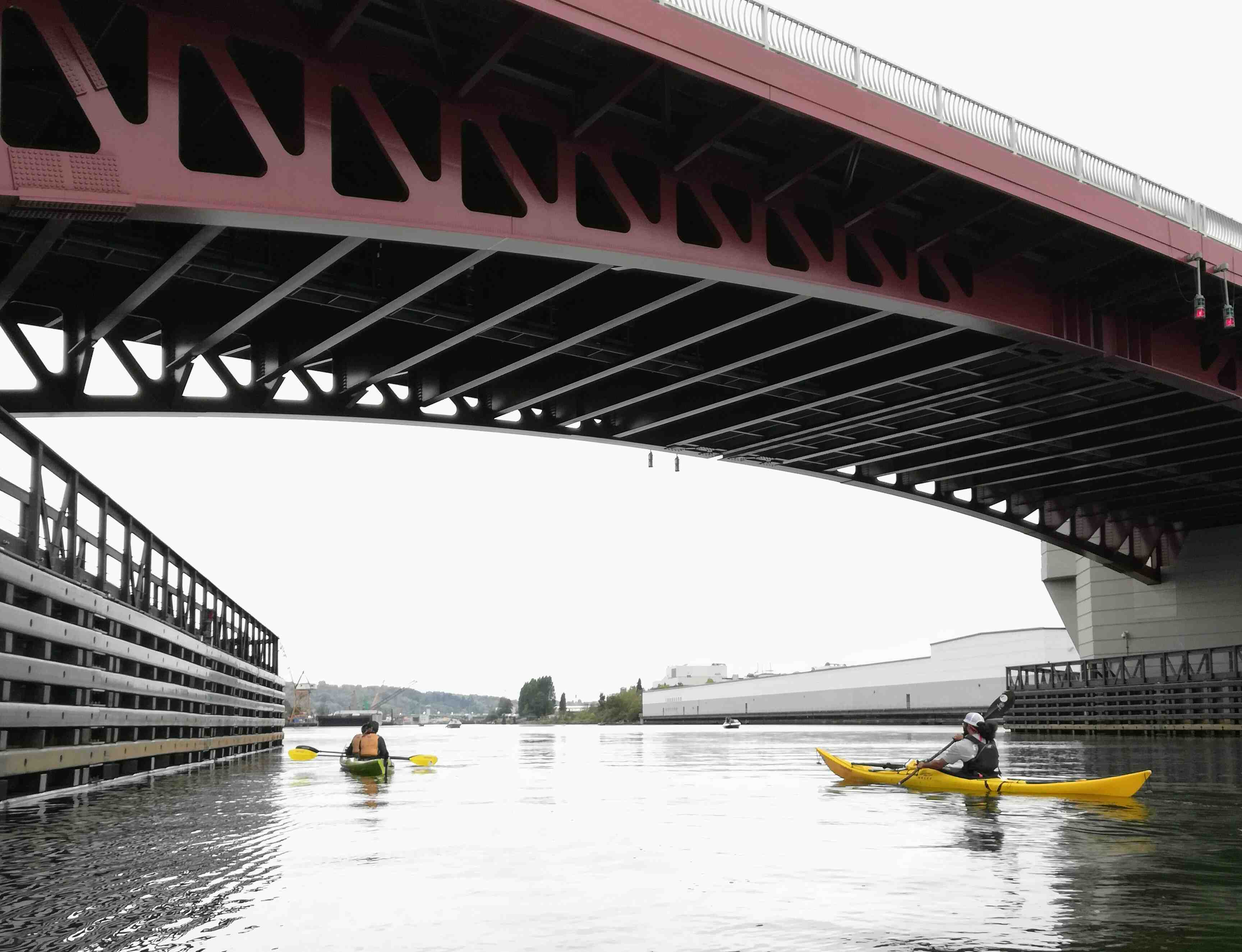At the 2019 fall meeting of the American Geophysical Union, Dr.
Center Updates
While the toxin cadmium is well-known to play a role in kidney, bone and lung disease and to cause cancer in humans, new evidence from the lab of Zhengui Xia, PI on UW SRP Project 2, suggests that exposure to cadmium at relatively low levels also leads to accelerated cognitive impairment, particularly in those who are genetically predisposed to Alzheimer's disease.
On November 22nd the UW SRP co-hosted a webinar with the Olympic Environmental Council (OEC) and the Northwest Toxic Communities Coalition (NWTCC) on the proposed cleanup of the Port Angeles Rayonier Pulp Mill site. The webinar featured OEC's Technical Advisor, Dr. Peter L.
Thirty-two attendees of the 2019 Superfund Research Program (SRP) annual meeting signed up for an optional boat tour of the Lower Duwamish Waterway Superfund Site organized by the UW SRP and hosted by James Rasmussen of the Duwamish River Cleanup Coalition (DRCC) and Shawn Blocker of the Environmental Protection Agency (EPA) Region 10. After the main meeting's conclusion, registrants bussed from the Hyatt Regency to a local marina where they loaded onto a 60-person boat with heated indoor seating.
Recently, the University of Washington Superfund Research Program (UW SRP) hosted the 2019 annual SRP meeting in Seattle on the theme of "Data to Knowledge to Action." From November 18th-20th, 408 attendees convened at the downtown Hyatt Regency to hear talks, peruse posters, attend special sessions, and interact face-to-face with colleagues from across the country.
Samantha Fung, a PhD student working with Rebecca Neuman and James Gawel on UW SRP Project Four, recently won best poster award at the 2019 conference of the Washington State Lake Protection Association (WALPA). The conference was held October 30-November 1 in Chelan, Washington on the theme "Lakes are for Everyone."
On October 19, Superfund Research Center trainee Megumi Matsushita worked in the rain to pull weeds and spread mulch at the Georgetown Green Wall in South Seattle's Duwamish Valley.
UW SRP Manager of Community Engagement, BJ Cummings, attended a September 25th meeting hosted by the U.S. Environmental Protection Agency (EPA) Region 10 at its downtown Seattle headquarters. EPA gave a short presentation about the proposed withdrawal of human health criteria for Washington State waters that it had established in 2016. EPA announced the changes in May after a petition from eight business groups.
For each Superfund site across the country, the U.S. Environmental Protection Agency (EPA) is required to establish a plan for "institutional controls" to protect the public from exposure to contamination. In EPA's language, Institutional Controls are "non-engineered instruments, such as administrative and legal controls, that help minimize the potential for human exposure to contamination and protect the integrity of the remedy."

On Saturday, September 7th, 15 kayakers joined UW SRP Community Engagement Manager, BJ Cummings, to paddle the waters of the Duwamish River, learning about its history and status as a Superfund Site.
It's hard to pursue a path in environmental health when you have no idea what that path looks like. Multiple times a year the University of Washington Superfund Research Program (UW SRP) hosts campus visits and lab tours for students to show off the science of UW SRP scientists while providing career development and support.
The UW Superfund Research Program and EDGE Center staff enjoyed sun, music, and lots of engaging interactions with adults and youth at the 13th annual Duwamish River Festival on August 17.

